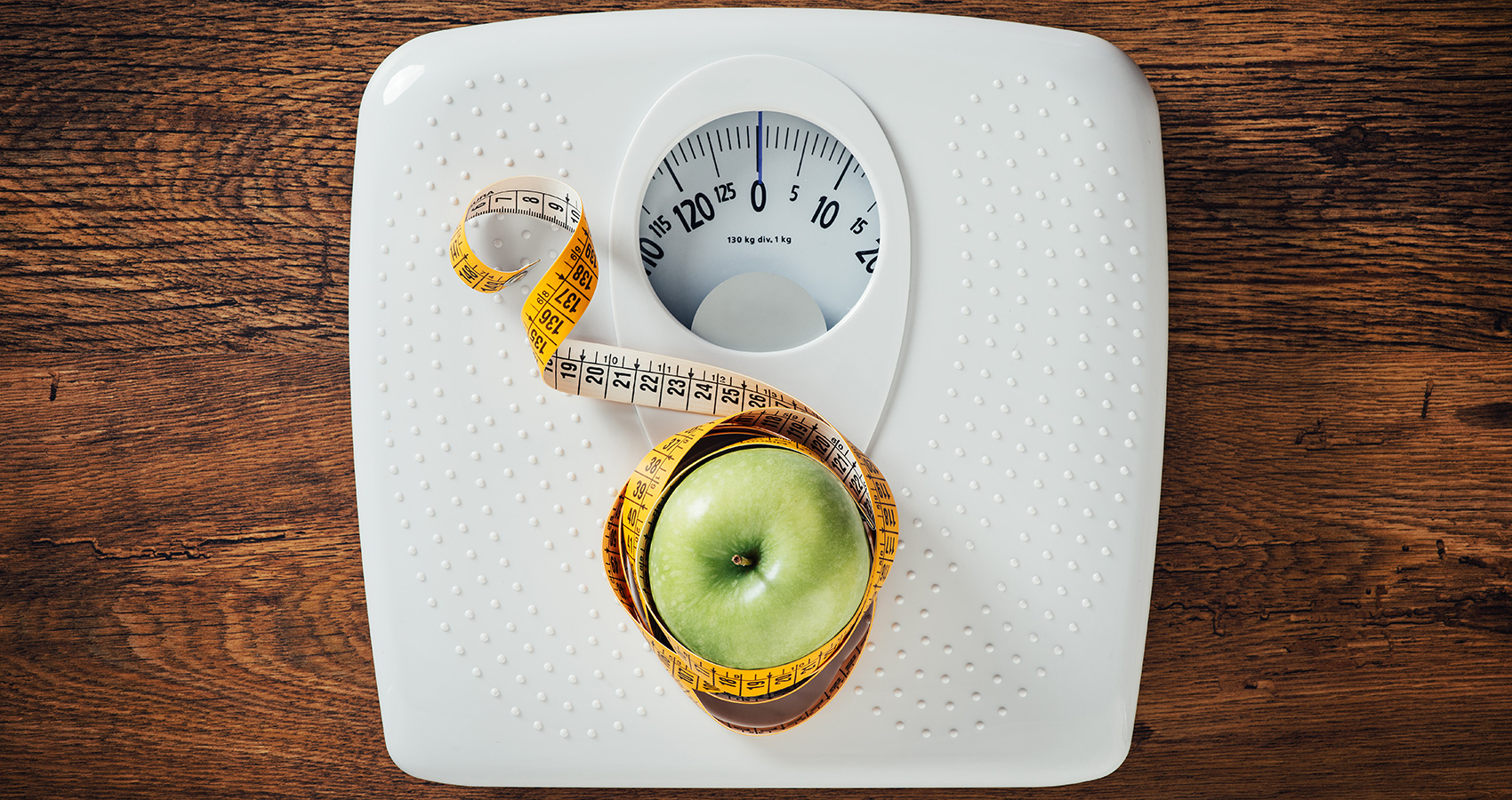The doctrine of weight loss is stupidly simple: Eat less. Move more. Burn more calories than you eat. Nutrition professionals can provide you that calorie plan in 20 minutes. You can set a MyFitnessPal goal to lose a pound a week and their number algorithm will give you a calorie goal. Trainers will have you add an exercise day to increase your calorie burn if you’re not losing weight at the rate you’re looking for.
Sometimes these steps absolutely work; that’s why we keep hearing them. But what about when they don’t? What if you’ve been struggling with your weight a long time, and “calories in, calories out” has stopped working for you? Is it because you’re doing it wrong? Not trying hard enough? Don’t have enough willpower? Many health professionals will give that feedback — tighten up the control a little more on the nutrition, resist temptations, keep daily food logs, exercise more frequently, exercise harder.
That may be the case. If you don’t have a somewhat nutritious diet, you eat out more than 3-4 times a week, exercise less than once a week, or exercise at a fairly low intensity, then yes. You have some room to shift priorities and add more healthy practices into your life.
But if you have used exercise and a nutritious diet or calorie restriction in the past, if you have lost and regained weight and can’t seem to lose it again, or if you have been successfully experiencing weight loss and have hit the dreaded plateau, there is something else going on.
Why Isn’t “Calories in, Calories Out” Working For Me?
What Calorie Plans Leave Out: Your Innate Biology
The human body, throughout its evolution, has honed its own ability to maintain a healthy weight. It has systems that, when we are eating too much, will send out signals that make us feel full and stop eating. It will increase our metabolism to burn extra calories so that we don’t store additional fat. This helps prevent us from weight gain.
The body also has systems that, when we are eating too little, will send out signals that make us feel hungry and cause us to seek out calorie-dense foods and eat a LOT of them to quickly restore calorie intake. The body will slow down our metabolism so that we don’t burn extra calories — instead they get stored as fat in preparation for a “famine.”
When we eat too little, the body experiences that as an environment of scarcity and shifts into survival mode: low metabolism, fat storage, and a plateau. We might feel compelled to eat more than we normally would, and find it difficult to avoid overeating during vulnerable times of stress, fatigue, or emotion.
Sound familiar?
If Our Bodies Are So Good At Managing Body Weight, Why Don’t I Have My Ideal Weight?
There are a few reasons why this innate system gets screwed up. One of the primary reasons is because for the vast majority of us, the ideal body image shown to us through popular media is far smaller than what our natural body weight is supposed to be.
A small part of our population has a genetic ability to be at a smaller, thinner body weight without any effect on metabolism. For the rest of us, there is body diversity that captures a whole range of sizes that are healthy, happy, and free of chronic disease risk. But because the popular image of health and beauty is to achieve that smaller size, free of most body fat, we feel that we need to alter our body shape to get there.
This is when we start to eat less than what we naturally need to maintain our usual body size. Often we also introduce exercise to burn more calories. This can initially lead to weight loss — but the body will eventually adapt, shift into a slower metabolism, and stop weight loss.
Because for the body’s survival, this is the alarm bells on the Titanic. The body will then do whatever it takes to regain the weight it lost: usually dropping metabolism and manifesting cravings or fatigue until you start eating again to restore the weight. For a period of time that extra food will be stored as fat as a survival mechanism and protection against a future “famine.” This can result in a higher weight than we started at. We feel the need to diet again.
Our culture interprets this cycle as “falling off the wagon,” or “giving up,” or “losing willpower.” In reality your body’s survival systems are stronger than any willpower you’ll ever be able to muster. You didn’t fail the diet. The diet failed you.
You May Also Like: 6 Inspiring People Leading the Way in Body Confidence
So If I’m Stuck, What Am I Supposed To Do?
If you are trying to lose weight without success, here are the practical steps you can take this summer to make sure you’re doing everything you can to maximize your chances of getting to a healthy weight.
1) Know what your needs are. If you’re following online advice for nutrition and fitness without really getting personalized recommendations from a fitness or nutrition professional, talking to someone is your first step. Following someone else’s path is only going to get you so far, and maybe even set you back — you need to know what is going to work for your body.
2) Break down the fear of eating more. If you remember from earlier in the article, a healthy metabolism that is higher, burns excess calories and doesn’t store fat is associated with eating enough. Knowing what your energy needs are is an important step to reckoning with what it takes to keep your metabolism from dipping into survival and fat storage.
3) Think through your weight loss goals. Have you met with health professionals who have told you your body weight is normal, or that you have no health risks? Do you have friends and family that tell you, you look fine? If these points are true and you still have a desire to pursue weight loss, understand that doing so may have the effects on your metabolism as outlined above. Challenge the thoughts that are telling you to continue pursuing weight loss.
4) Reconsider how you got here. If you’ve met with health professionals who have concerns about your weight or health, or you are hearing direct or indirect messages from your social circle that you should pursue weight loss, consider whether any history of dieting may have resulted in the above metabolism shifts. If you feel like you have had restrictive eating patterns that have caused weight gain above your usual body weight, talk to a nutrition professional about starting a therapeutic nutrition plan to restore a healthy metabolism and body weight.









